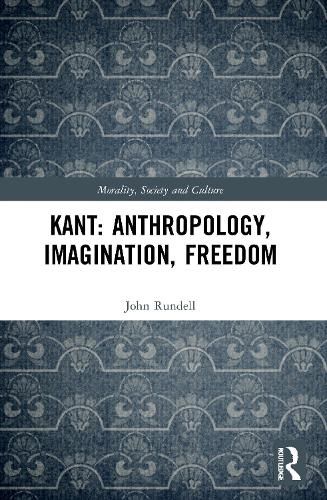Readings Newsletter
Become a Readings Member to make your shopping experience even easier.
Sign in or sign up for free!
You’re not far away from qualifying for FREE standard shipping within Australia
You’ve qualified for FREE standard shipping within Australia
The cart is loading…






In a new reading of Immanuel Kant’s work, this book interrogates his notions of the imagination and anthropology, identifying these - rather than the problem of reason - as the two central pivoting orientations of his work. Such an approach allows a more complex understanding of his critical-philosophical program to emerge, which includes his accounts of reason, politics and freedom as well as subjectivity and intersubjectivity, or sociabilities. Examining Kant’s theorisation of the complexity of our phenomenological existence, the author explores his transcendental move that includes reason and understanding whilst emphasising the importance of the faculty of the imagination to undergird both, before moving to consider Kant’s pluralised, transcendental notion of freedom. This outstanding book will appeal to scholars with interests in philosophy, politics, anthropology and sociology, working on questions of imagination, reason, subjectivities and human freedom.
$9.00 standard shipping within Australia
FREE standard shipping within Australia for orders over $100.00
Express & International shipping calculated at checkout
In a new reading of Immanuel Kant’s work, this book interrogates his notions of the imagination and anthropology, identifying these - rather than the problem of reason - as the two central pivoting orientations of his work. Such an approach allows a more complex understanding of his critical-philosophical program to emerge, which includes his accounts of reason, politics and freedom as well as subjectivity and intersubjectivity, or sociabilities. Examining Kant’s theorisation of the complexity of our phenomenological existence, the author explores his transcendental move that includes reason and understanding whilst emphasising the importance of the faculty of the imagination to undergird both, before moving to consider Kant’s pluralised, transcendental notion of freedom. This outstanding book will appeal to scholars with interests in philosophy, politics, anthropology and sociology, working on questions of imagination, reason, subjectivities and human freedom.